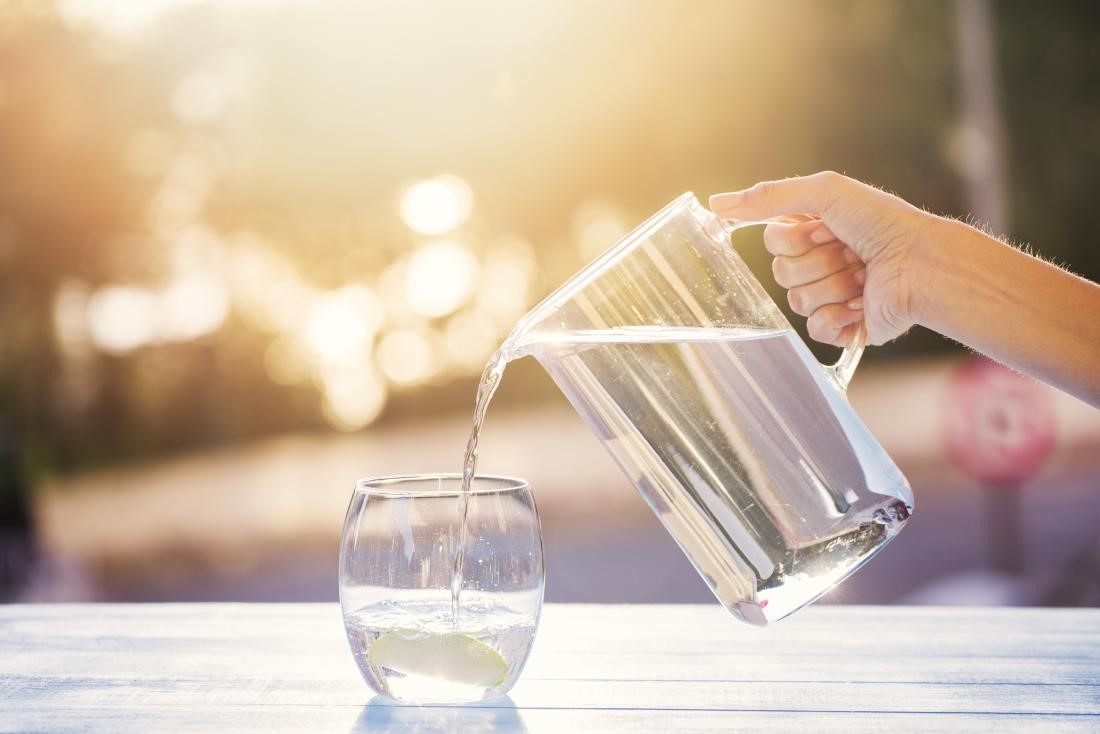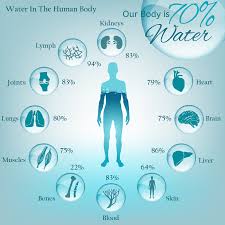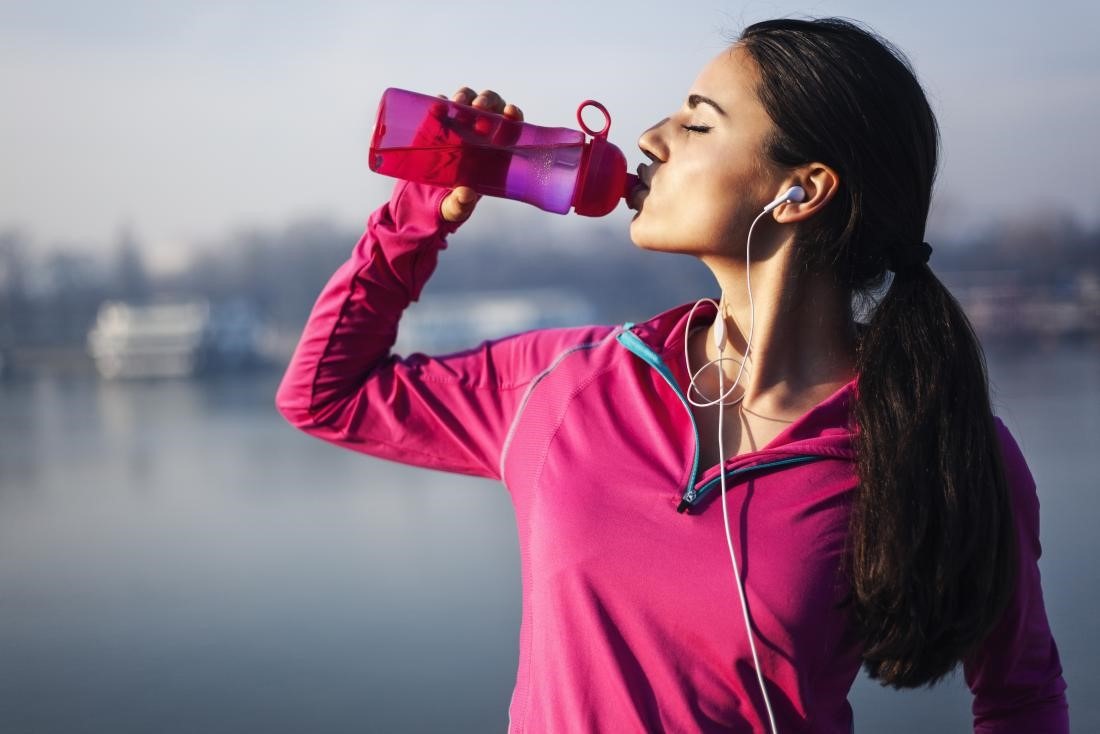Drinking fresh, clear water is crucial for health and well-being, but many people do not consume enough water each day. Around 60% of the  body is made up of water, and around 71% of the planet’s surface is covered by water. Perhaps it is the ubiquitous nature of water that means drinking enough each day is not at the top of many people’s lists of priorities.
body is made up of water, and around 71% of the planet’s surface is covered by water. Perhaps it is the ubiquitous nature of water that means drinking enough each day is not at the top of many people’s lists of priorities.
For me, I like to drink 2-3 liters of fresh water every day. I drink it away from meals (it can dilute digestive enzymes which weaken with age), and I always arry it with me. A trick that I learned a long time ago…carry around a litre refillable bottle, and commit to filling and drinking at least 2 of those throughout the day. When it’s by your side, you never forget to indulge.
Dr. Cory Holly likes to use the mantra “the solution is dilution’ when considering water’s benefits. In fact, it forms the base of his well known Food Pyramid, even before food, supplements and nutrients.
Should you have bottled, distilled, britta…? At this point, it’s all just splitting of hairs. The jury is still out on what is best, but the main tenant is to simply get your water in, whether it’s tap or expensive French water! Who cares? Keep it simple…and drink up!
Fifteen benefits of drinking water
- It lubricates the joints
Cartilage, found in joints and the disks of the spine, contains around 80 percent water. Long-term dehydration can reduce the joints’ shock-absorbing ability, leading to joint pain.
- It forms saliva and mucus
Saliva helps us digest our food and keeps the mouth, nose, and eyes moist. This prevents friction and damage. Drinking water also keeps the mouth clean. Consumed instead of sweetened beverages, it can also reduce tooth decay.
- It delivers oxygen throughout the body
Blood is more than 90 percent water, and blood carries oxygen to different parts of the body.
- It boosts skin health and beauty
With dehydration, the skin can become more vulnerable to skin disorders and premature wrinkling.
- It cushions the brain, spinal cord, and other sensitive tissues
Dehydration can affect brain structure and function. It is also involved in the production of hormones and neurotransmitters. Prolonged dehydration can lead to problems with thinking and reasoning.
- It regulates body temperature
Water that is stored in the middle layers of the skin comes to the skin’s surface as sweat when the body heats up. As it evaporates, it cools the body. In sport. Some scientists have suggested that when there is too little water in the body, heat storage increases and the individual is less able to tolerate heat strain. Having a lot of water in the body may reduce physical strain if heat stress occurs during exercise. However, more research is needed into these effects.
7, The digestive system depends on it
The bowel needs water to work properly. Dehydration can lead to digestive problems, constipation, and an overly acidic stomach. This increases the risk of heartburn and stomach ulcers.
- It flushes body waste
Water is needed in the processes of sweating and removal of urine and feces.
- It helps maintain blood pressure

A lack of water can cause blood to become thicker, increasing blood pressure.
- The airways need it
When dehydrated, airways are restricted by the body in an effort to minimize water loss. This can make asthma and allergies worse.
- It makes minerals and nutrients accessible
These dissolve in water, making it possible for them to reach different parts of the body.
- It prevents kidney damage
The kidneys regulate fluid in the body. Insufficient water can lead to kidney stones and other problems.
- It boosts performance during exercise
Some scientists have proposed that consuming more water might enhance performance during strenuous activity. More research is needed to confirm this, but one review found that dehydration reduces performance in activities lasting longer than 30 minutes.
- Weight loss
Water may also help with weight loss, if it is consumed instead of sweetened juices and sodas. “Preloading” with water before meals can help prevent overeating by creating a sense of fullness.
- It reduces the chance of a hangover
When partying, unsweetened soda water with ice and lemon alternated with alcoholic drinks can help prevent overconsumption of alcohol.



